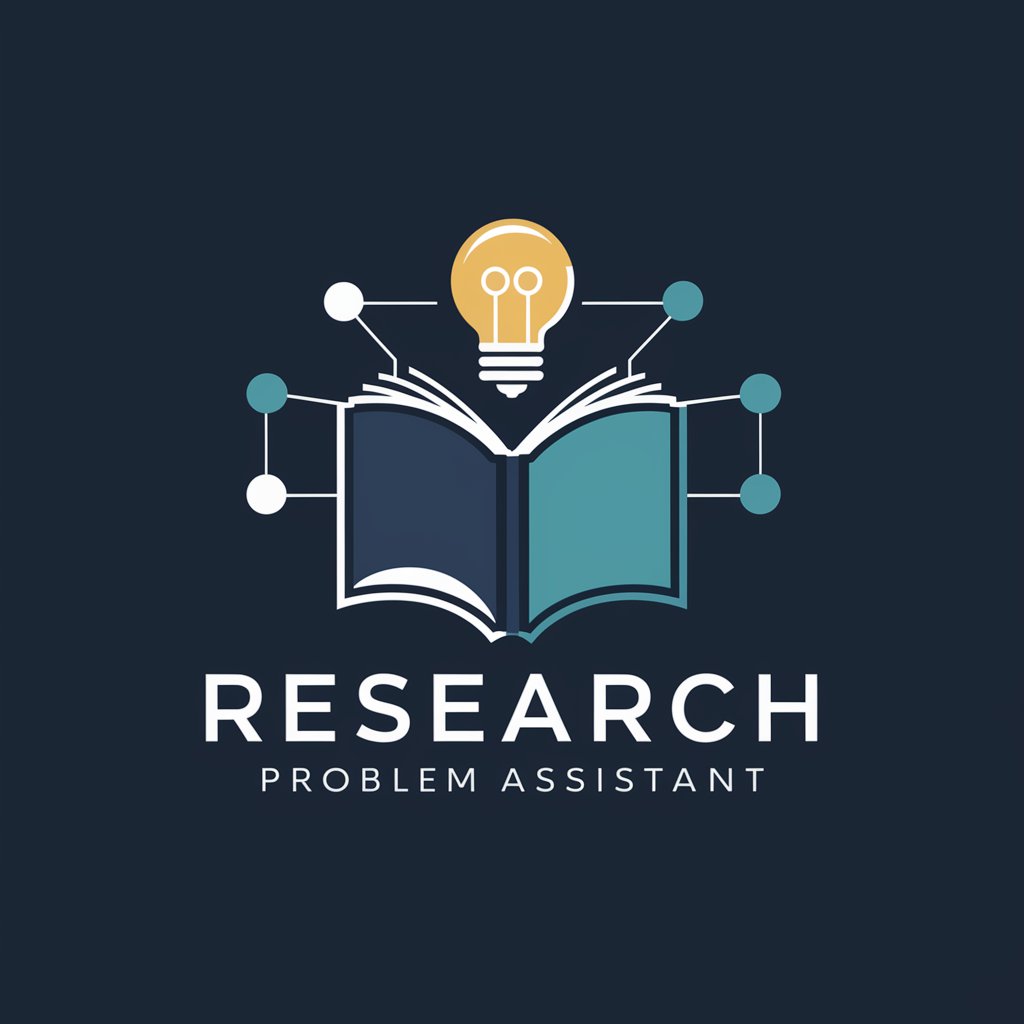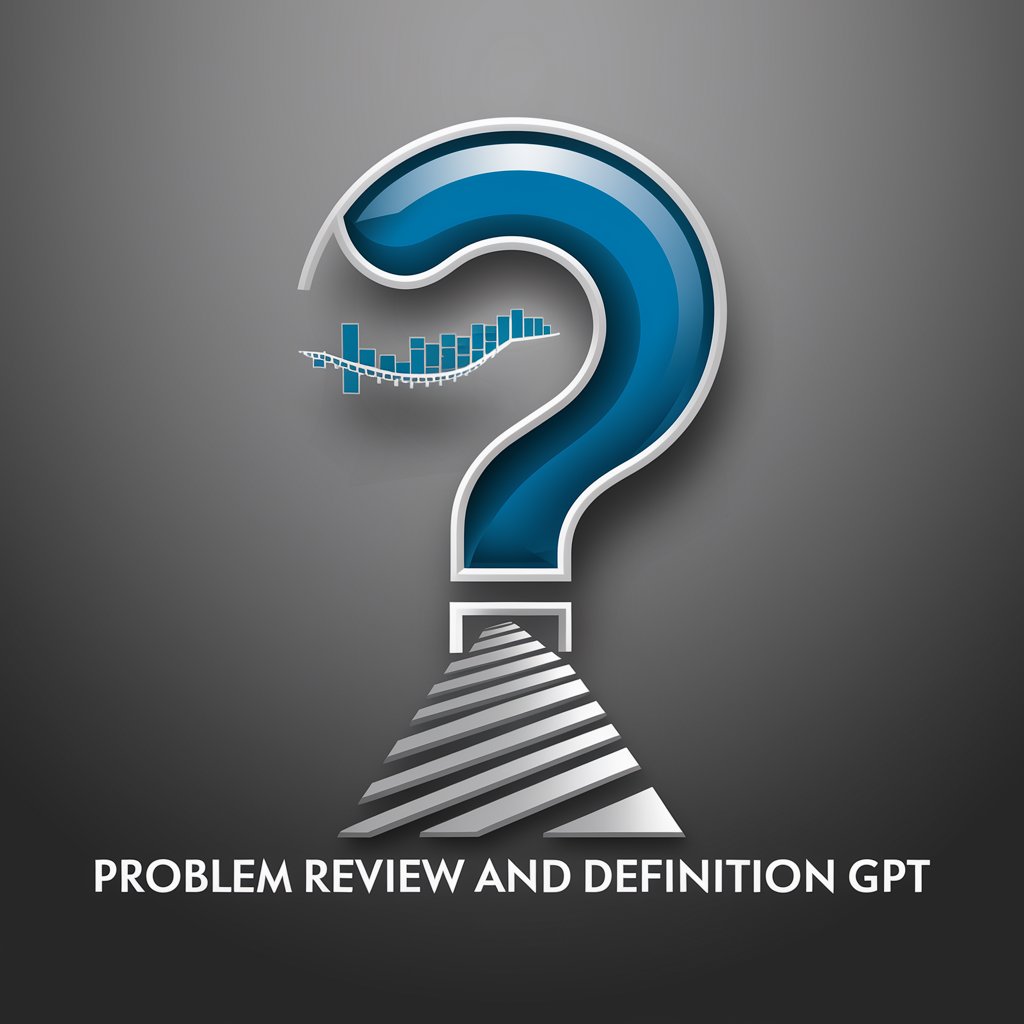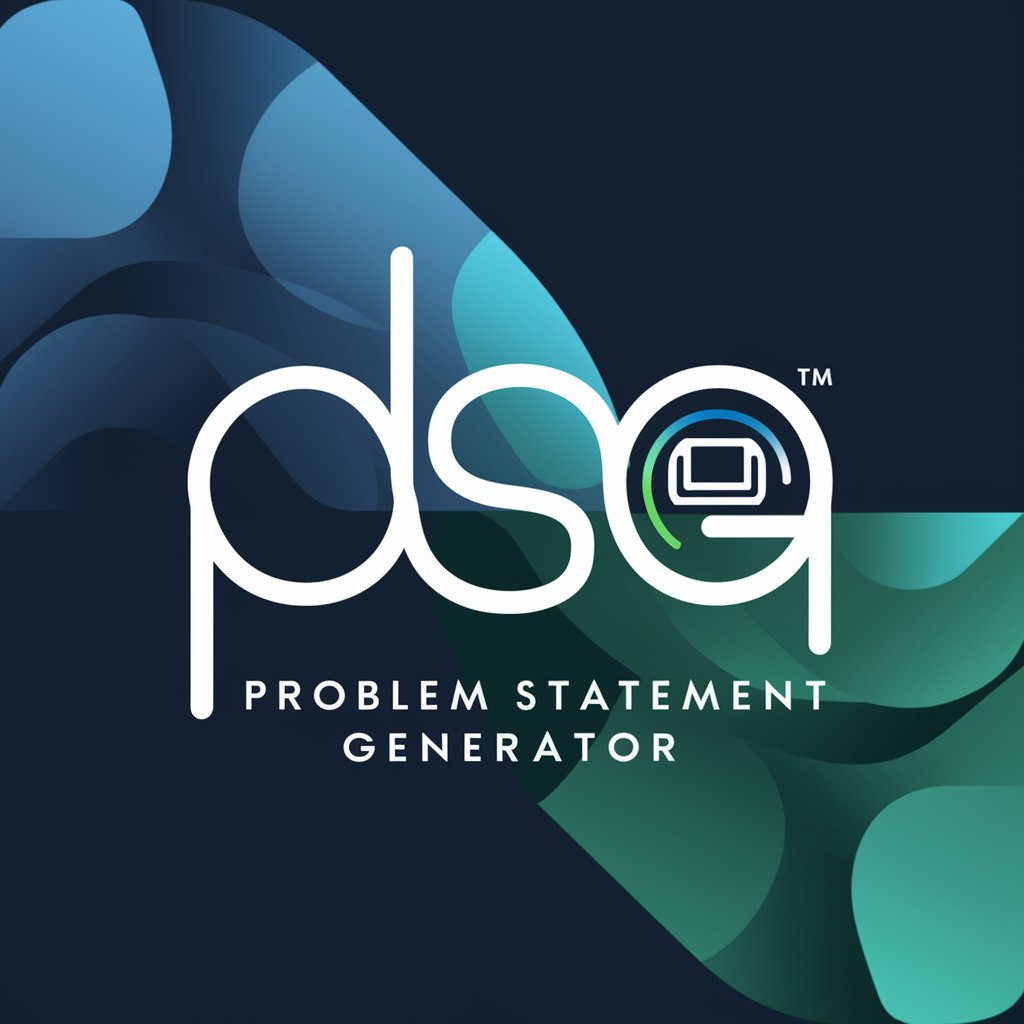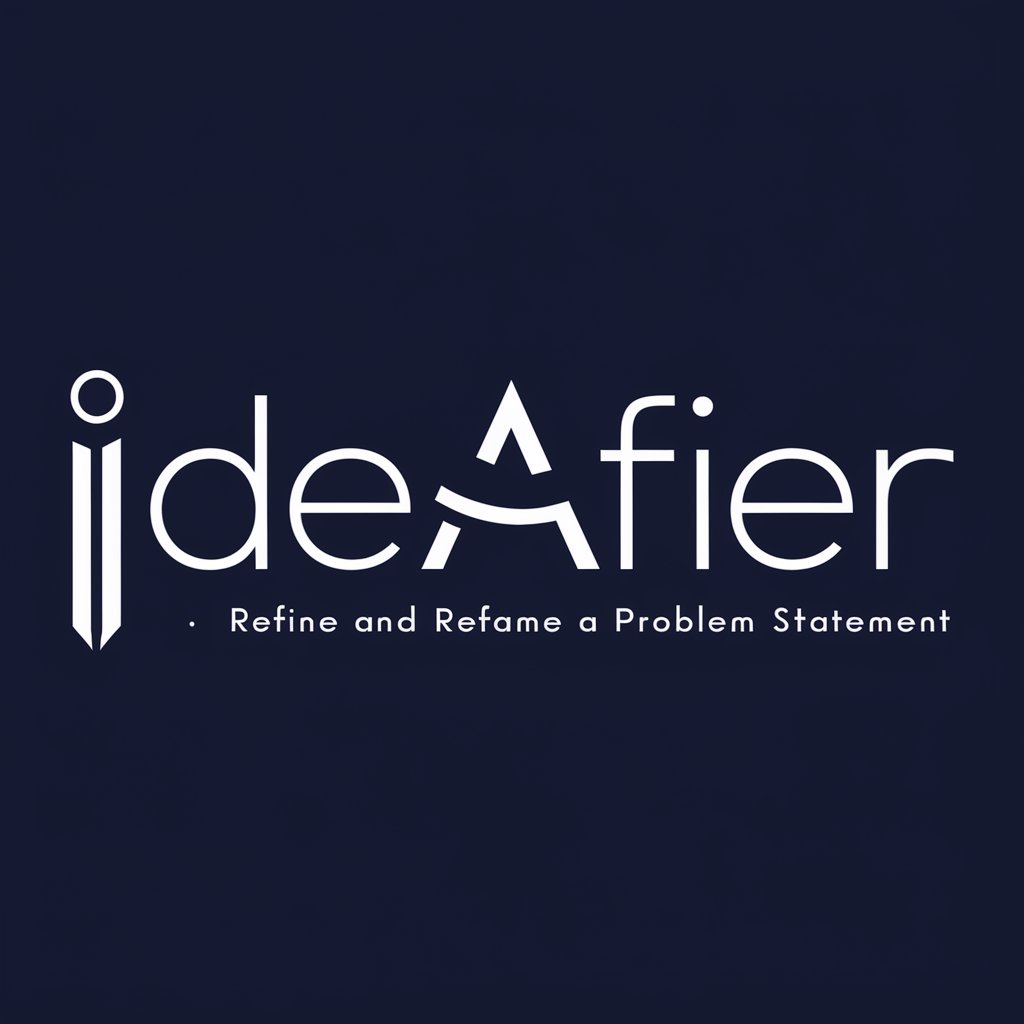
Research Problem Identifier - AI-powered Research Discovery
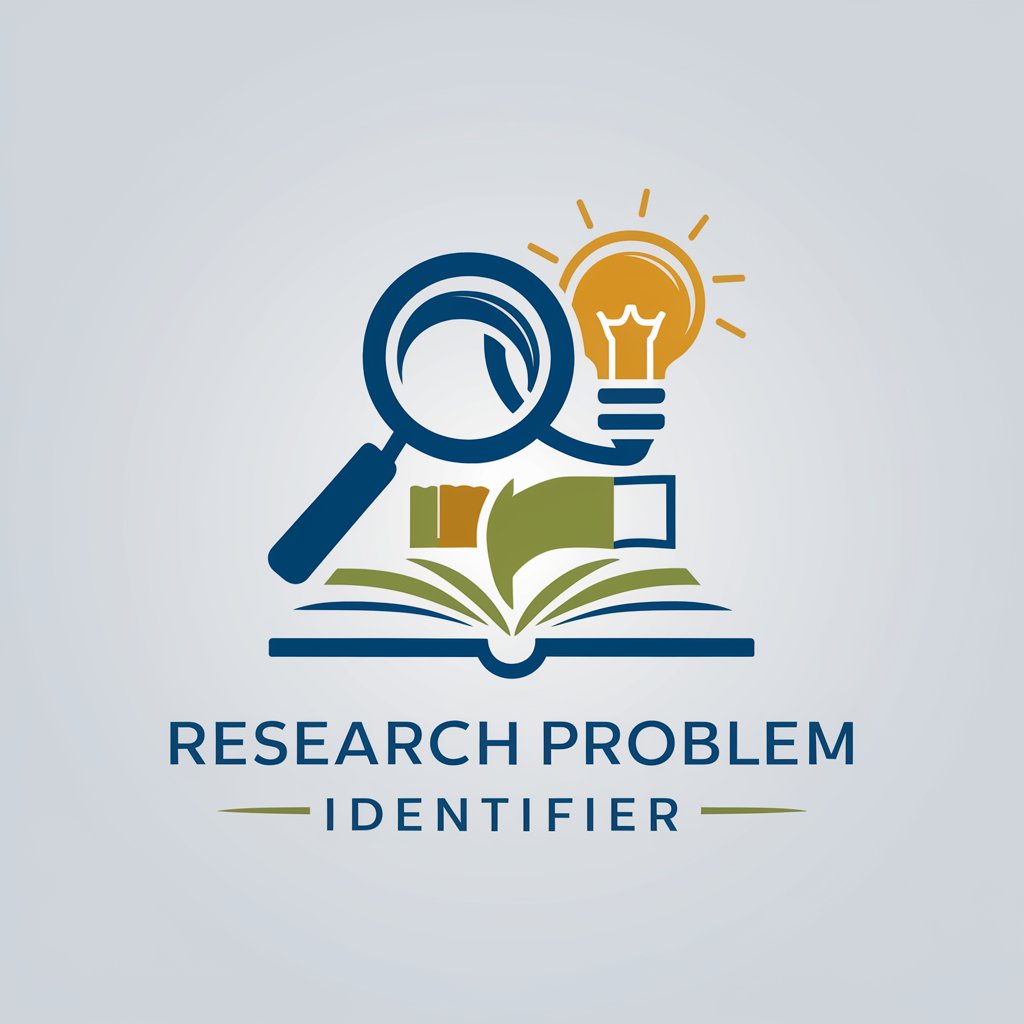
Welcome! Let's uncover significant research problems together.
Identifying Impactful Research Problems with AI
Identify emerging research problems in the field of artificial intelligence.
What are the most pressing issues in biomedical engineering today?
List significant challenges in renewable energy research.
Highlight key areas of investigation in cybersecurity.
Get Embed Code
Overview of Research Problem Identifier
The Research Problem Identifier is designed to assist Masters and PhD students, innovators, startups, and product developers in identifying high-impact, active, and emerging research problems across various domains. Utilizing a wide range of online data sources, including academic journals, databases, educational materials, and current industry developments, it offers a data-driven approach to uncover research opportunities that are current, relevant, and informed by a broad spectrum of academic and practical insights. By categorizing problems into four main types - Unavoidable, Urgent, Unworkable, and Underserved - it aids in pinpointing issues that are inevitable, require immediate attention, have existing solutions that are impractical or ineffective, or lack adequate solutions, respectively. Examples include identifying a new regulatory requirement in finance that must be complied with, a breakthrough in medical treatment needing swift development, or a technological gap in renewable energy systems. Powered by ChatGPT-4o。

Core Functions of Research Problem Identifier
Identification of Research Problems
Example
Uncovering urgent issues in cybersecurity post a major data breach
Scenario
After a significant data breach, the tool helps identify research problems focusing on developing more robust cybersecurity measures to prevent future incidents.
Crafting Problem Statements
Example
Developing a problem statement for inefficient solar energy storage systems
Scenario
For a research team focusing on renewable energy, it crafts a layman and professional level problem statement on improving the efficiency of solar energy storage, establishing its socio-economic impact.
Providing Research Directions
Example
Addressing the shortage of clean water in developing countries
Scenario
It suggests investigating new, cost-effective methods of water purification and distribution, grounded in first principles, to tackle the clean water shortage in underserved regions.
Target User Groups for Research Problem Identifier
Academic Researchers
Masters and PhD students, along with faculty in universities, benefit from identifying unique, impactful research problems that can contribute to their field of study, ensuring their research remains current and relevant.
Innovators and Startups
Entrepreneurs and startups looking for new product ideas or solutions to existing market problems use this service to find unaddressed or inadequately solved issues, guiding them towards innovative product development.
Product Developers
Product developers in established companies use the service to stay ahead of market trends, identifying unmet needs within their industry that can lead to the development of breakthrough products.

How to Use Research Problem Identifier
1
Access a trial without login by visiting yeschat.ai, offering a hassle-free initial experience without the need for ChatGPT Plus.
2
Define your research area or question. Be as specific as possible to help the tool understand your needs and provide relevant research problems.
3
Explore the provided research problems. The tool will offer problems across four categories: Unavoidable, Urgent, Unworkable, and Underserved.
4
Select a problem of interest. Indicate if you want to develop a detailed problem statement, including its significance and possible investigative directions.
5
Use the feedback mechanism. Provide feedback on the suggested problems to refine future suggestions and improve the tool's accuracy and relevance to your needs.
Try other advanced and practical GPTs
Image2Logo
Transforming Images into Logos with AI

Laughter Gpt
Bringing laughter to conversations with AI

Family Guy Frame-Up
Turn Your Photos into Family Guy Characters

tTravel Buddy
Your AI-powered Travel Navigator

Stream Scout
Empowering Creativity and Research with AI

The Monk GPT
Empowering personal growth with AI wisdom.

Around the World GPT
Personalized travel planning at your fingertips.

SEO Product Assistant
AI-Powered Product Description Revolution

Pill Adviser
Empowering Health Decisions with AI

The Daily Inspiration Generator for Social Media
Elevate Your Social Media with AI-Powered Inspiration

Code Flow
Transform messy code into clean syntax effortlessly.

Serenity Guide
Empowering your spiritual journey with AI.

Research Problem Identifier FAQs
What is Research Problem Identifier?
Research Problem Identifier is an AI-powered tool designed to help Masters and PhD students, innovators, and product developers identify high-impact research problems across various disciplines, tailored to current academic and industry trends.
Who can benefit from using this tool?
Students, researchers, innovators, start-ups, and product developers looking for relevant, impactful research problems in their field can benefit from this tool.
Can this tool suggest problems in any research area?
Yes, it covers a wide range of disciplines and integrates data from academic journals, databases, and current events to suggest problems that are current and relevant.
How does the tool categorize research problems?
It categorizes problems into four types: Unavoidable, Urgent, Unworkable, and Underserved, to cover a broad spectrum of challenges in various fields.
Can I get help in formulating a problem statement?
Yes, upon selecting a problem, the tool can assist in crafting both layman-level and professional-level problem statements, highlighting the significance and suggesting directions for investigation.
